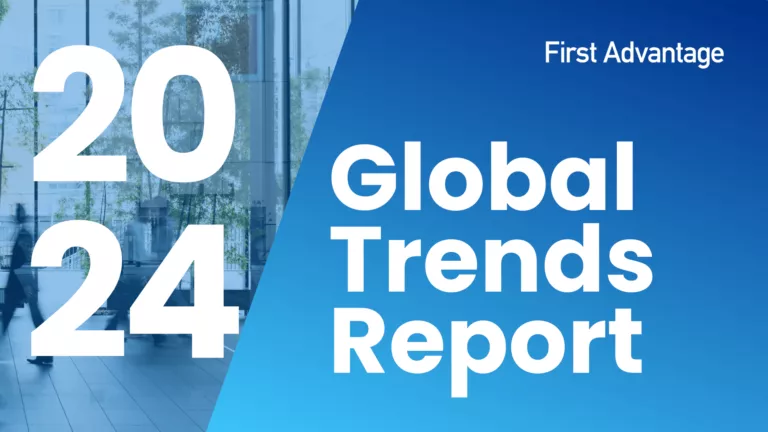Starting a new pre-employment background screening program is a big deal. Whether you’re beginning from scratch or switching providers, it requires a lot of planning, collaboration and effort. Yet, all too often, once the program is up and running, it goes on autopilot until issues arise.
A better strategy is to regularly monitor your employment background screening program with a set of consistent program metrics. Frequently reviewing program performance data enables you to quickly address and correct any potential problems or inefficiencies before they compromise the integrity of your screening program, impact your broader hiring process or increase your liability and costs. It also helps you keep screening workflows optimized and gain increased visibility into:
- Order volume and turnaround times
- Process efficiency, including bottlenecks in the process
- Compliance issues and regulatory requirements
- Program costs and ROI
- Overall performance benchmarks
Ultimately, you’ll get a clear, big-picture view of how your screening program is performing, along with pinpointed insights to help you quickly spot screening trends, process delays, program inconsistencies and potential compliance issues.
What to watch. Below are a few basic metrics that can provide critical insight into program performance, while also helping you understand if specific service levels are being achieved. This is not a complete list, but a good sampling to get you started.
- Order volume for drug testing and background checks, including year-over-year, year-to-date and monthly comparisons
- Average turnaround time by background screening order/package
- Average turnaround time by component (criminal check, employment verification, etc.)
- For international programs, average turnaround time by country
- Orders with missing information, including frequency and commonly missed documents
- Orders with “decisional” outcomes and number of decisional over-rides
- Adjudication percentages, including “approved for hire,” “not eligible for hire” and “decisional”
- Market-based benchmarks including top five most frequently ordered drug testing and background check components, and screening volume comparisons
Frequency and access are critical. Timing is everything, so it’s important that you’re able to access performance insights frequently, and on the fly as necessary. Background check companies offer different levels of access to program analytics. Most provide static performance reports on a monthly, quarterly or annual basis and arrange collaborative review meetings to discuss the metrics and make program recommendations.
Others are moving toward self-serve tools such as an online desktop application (app) or portal that gives recruiters and employers the flexibility to run their own detailed screening reports and summary dashboards, anytime, from any computer with internet access. These analytic apps can return instant reports in the form of data-driven visualizations that can be automatically converted into PDFs or Power Point slides for management presentations. Since the reports are illustrated, they’re usually easy to understand without the need for assistance or interpretation from the screening provider.
No matter how you do it, establish a frequent schedule to regularly review the numbers. If you don’t have access to real-time insights through an analytic app, work with your screening provider to create an escalation path for faster access to program metrics. By continually monitoring your screening program, you can consistently nurture and optimize its performance so it can do its primary job: help you quickly and cost-effectively select the most qualified candidates to represent your brand.
For more information on the latest advances in screening analytics, contact First Advantage today.



